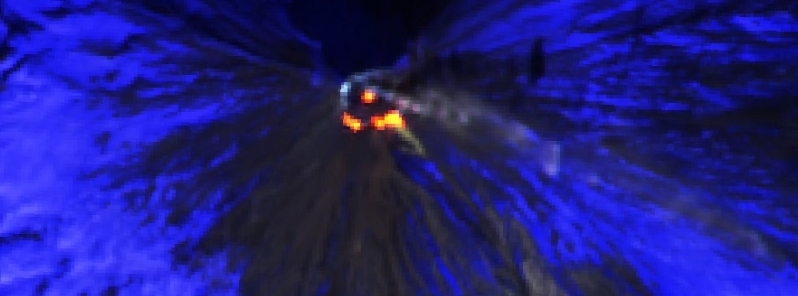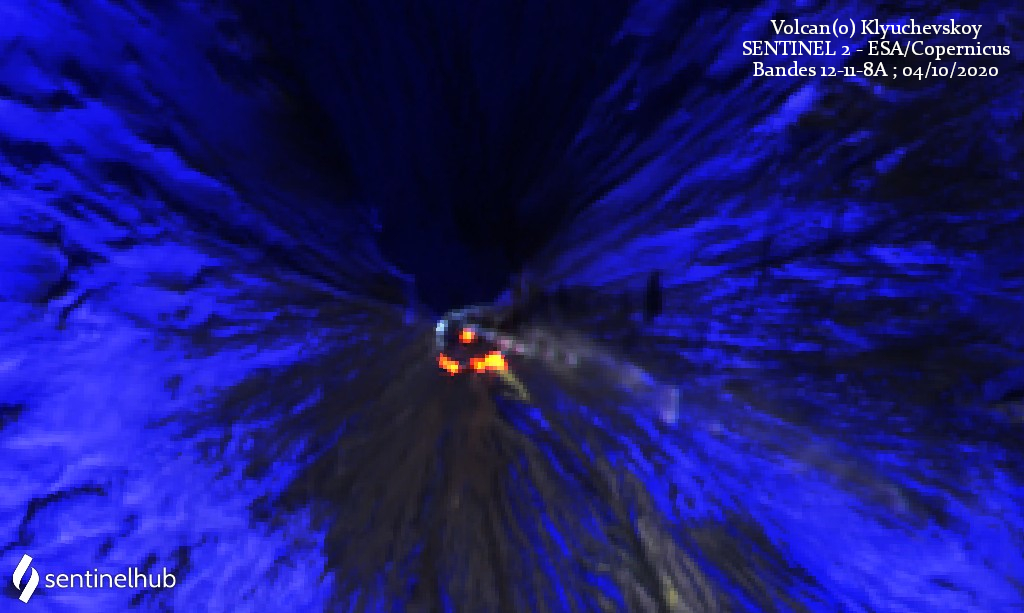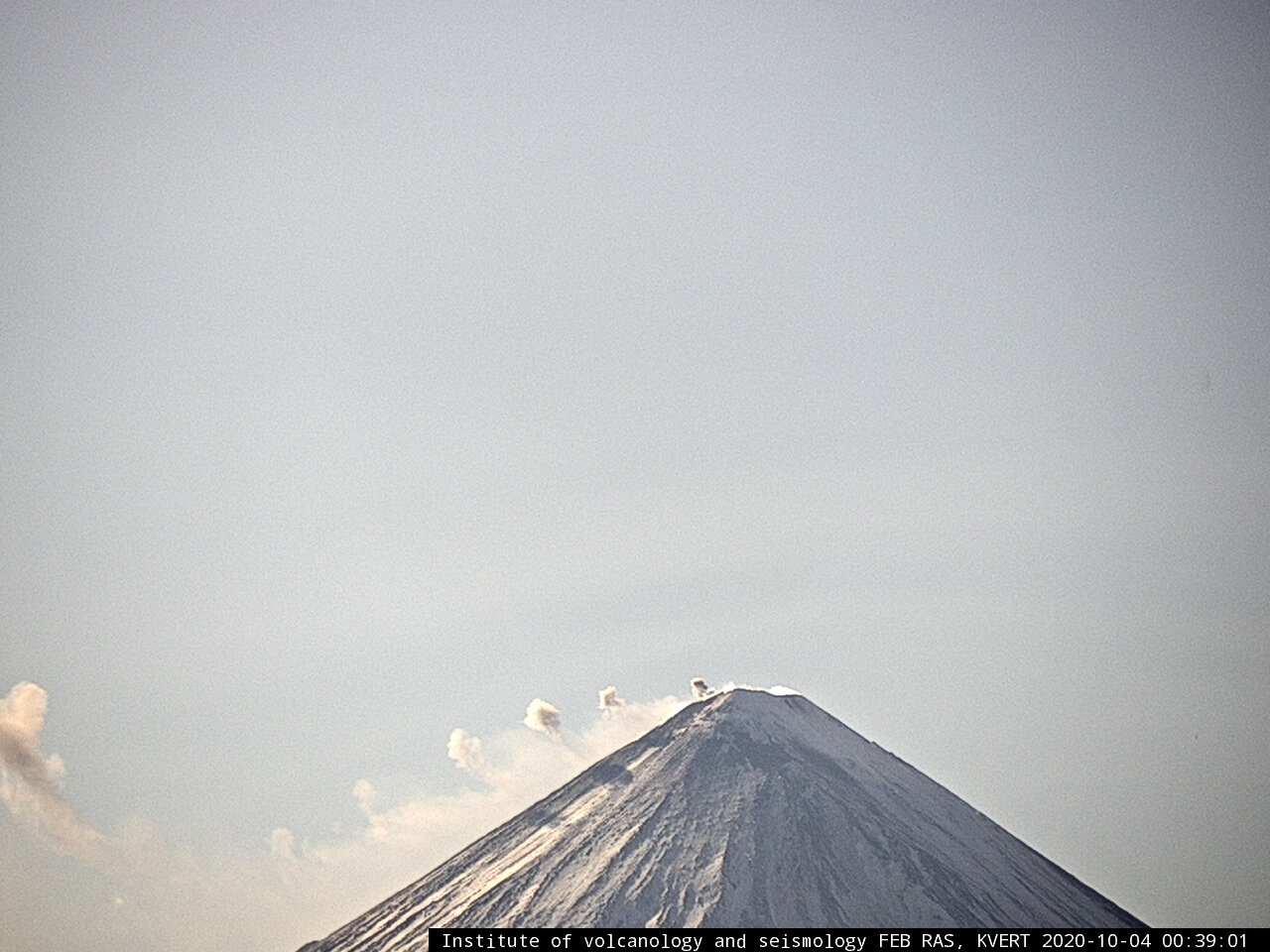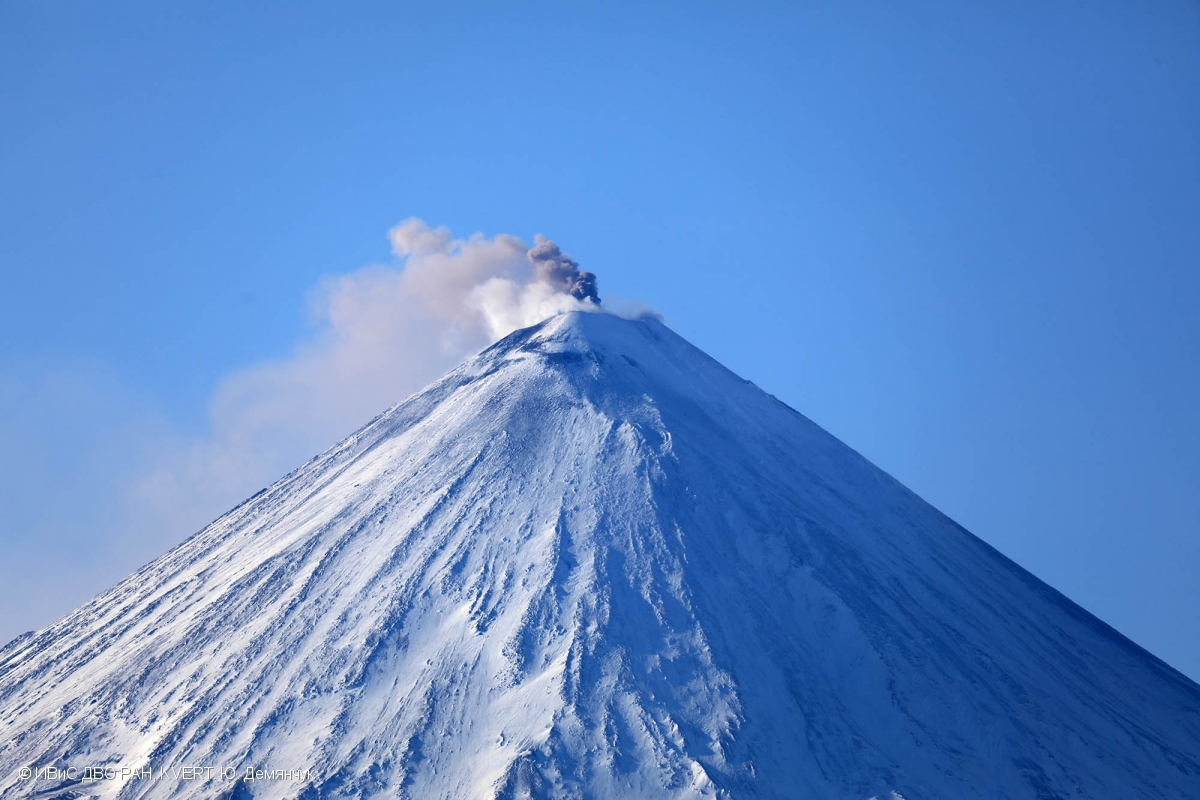New lava flow at Klyuchevskoy volcano, Russia

Moderate explosive-effusive eruption continues at Klyuchevskoy volcano, with new lava effusion observed at its southeastern flank, according to the Kamchatka Volcanic Eruption Response Team's (KVERT) bulletin on October 5, 2020.
A new phase of lava flow started to effuse along the Apakhonchich chute, the volcano's southeastern flank, at 13:00 UTC on October 4.
Explosions send ash up to 300 – 400 m (980 – 1 300 feet) above the crater of the volcano (about 5 km / 16 400 feet a.s.l.), while a gas-steam plume containing some amount of ash descends along the slope of the volcano towards the east, KVERT said.
The Aviation Color Code for the volcano was raised from Green to Yellow at 01:38 UTC on October 2.
The strombolian activity began at 22:03 UTC on October 1.

Klyuchevskoy volcano on October 4. Image credit: Copernicus ESA/Sentinel-2

Image credt: Yu, Demyanchuk, UVS FEB RAS, KVERT

Taken October 2. Image credit: Yu. Demyanchuk, IVS FEB RAS, KVERT
#Volcan #Volcano #Klyuchevskoy via
kbgsras pic.twitter.com/koxg4tJWqn— Shérine (@SherineFrance) October 5, 2020
#Klyuchevskoy timelapse 2020-10-03 pic.twitter.com/gTRy6hyXrO
— Samaruca (@Samaruca3) October 4, 2020
Activity at the volcano increased at around 12:10 UTC on October 6.
According to the Tokyo VAAC, a possible eruption produced volcanic ash up to 8.8 km (29 000 feet) above sea level, extending south.
Volcanic ash was continuously observed in satellite imagery at 18:00 UTC.
Geological summary
Klyuchevskoy (also spelled Kliuchevskoi) is Kamchatka's highest and most active volcano. Since its origin about 6 000 years ago, the beautifully symmetrical, 4 835-m-high (15 862 feet) basaltic stratovolcano has produced frequent moderate-volume explosive and effusive eruptions without major periods of inactivity. It rises above a saddle NE of sharp-peaked Kamen volcano and lies SE of the broad Ushkovsky massif.
More than 100 flank eruptions have occurred during the past roughly 3 000 years, with most lateral craters and cones occurring along radial fissures between the unconfined NE-to-SE flanks of the conical volcano between 500 m and 3 600 m (1 640 – 11 811 feet) elevation.
The morphology of the 700-m-wide (2 296 feet) summit crater has been frequently modified by historical eruptions, which have been recorded since the late-17th century. Historical eruptions have originated primarily from the summit crater, but have also included numerous major explosive and effusive eruptions from flank craters. (GVP)
Featured image credit: Copernicus ESA/Sentinel-2

Commenting rules and guidelines
We value the thoughts and opinions of our readers and welcome healthy discussions on our website. In order to maintain a respectful and positive community, we ask that all commenters follow these rules.